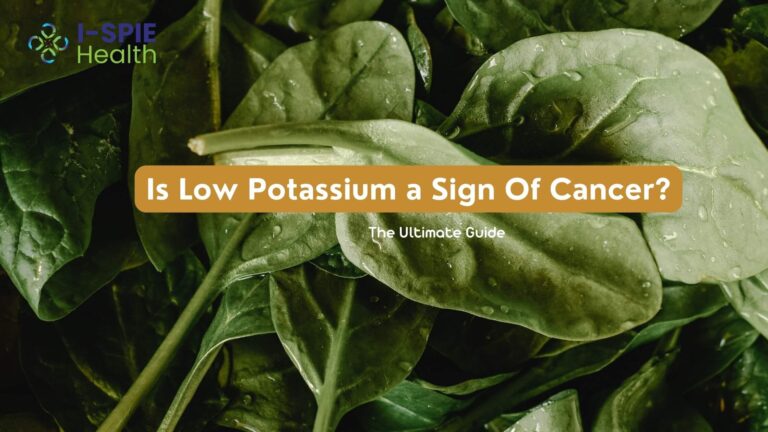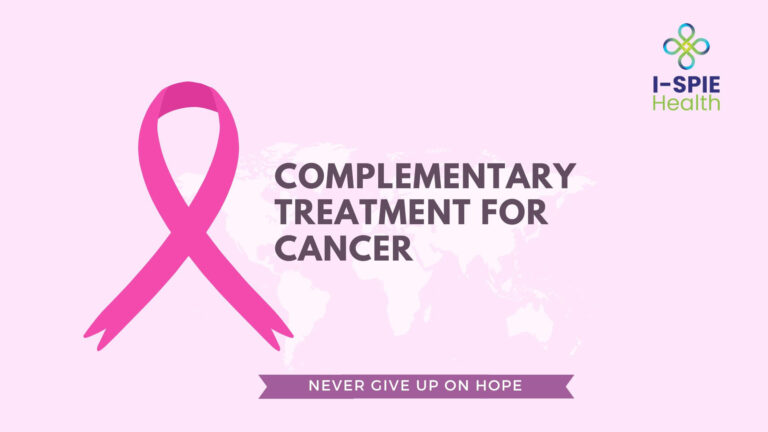When John Miller was diagnosed with stage 4 prostate cancer, he was told the prognosis was grim. Like many, John wondered just how long he might live with this advanced disease. The reality of stage 4 prostate cancer is often daunting, but there are stories of remarkable survival that bring hope and inspiration.
This blog explores What Is the Longest Someone Has Lived with Stage 4 Prostate Cancer with cases, factors contributing to extended life expectancy, and how working with a cancer coach can make a difference in your journey.
What is Stage 4 Prostate Cancer?
Stage 4 prostate cancer, also known as metastatic prostate cancer, occurs when the cancer has spread beyond the prostate to other parts of the body, such as the bones, lymph nodes, or other organs.
At this stage, the disease is more challenging to treat, and the prognosis is typically less favorable. Survival statistics often show a median survival rate of 2-4 years, but these numbers don’t tell the whole story. We have covered the whole story here in the article: does prostate cancer make you tired?
Factors Influencing Survival Rates
1. Treatment Choices
John’s journey, like many others, was significantly influenced by the treatment options he chose. Whether it was hormone therapy, chemotherapy, or newer targeted therapies, the effectiveness of these treatments played a crucial role in managing his stage 4 prostate cancer.
Each treatment type has its benefits and potential side effects, and selecting the right combination or sequence of treatments can be key to extending survival. In John’s case, a carefully chosen treatment plan tailored to his cancer’s specific characteristics made a significant difference.
2. Overall Health and Age
Another critical factor that impacted John’s survival was his overall health and age at the time of diagnosis. Younger patients and those in better general health often have more treatment options available and can tolerate aggressive therapies better than older or less healthy individuals.
John’s relatively good health allowed him to undergo treatments that might have been too taxing for others, thereby contributing to his longer survival.
3. Response to Treatment
How John’s body responded to treatment was another vital aspect of his journey. Some patients experience a more robust and sustained response to therapies, which can slow disease progression and improve survival rates.
Monitoring treatment effectiveness through regular scans and blood tests allowed John’s medical team to adjust his treatment plan as needed, ensuring the best possible outcomes.
4. Early Detection
Early detection of metastasis, even within the context of stage 4 cancer, can be a significant factor in improving survival rates. The sooner cancer spread is identified and treated, the better the chances of controlling it. In John’s case, regular check-ups and prompt action when symptoms arose allowed for early intervention, which played a role in prolonging his life.
5. Aggressive and Personalized Treatment Plan
The adoption of an aggressive, personalized treatment plan also enhanced John’s survival. This approach involved not only using the most advanced treatments available but also tailoring these treatments to John’s specific cancer profile.
By considering factors such as genetic mutations and tumor characteristics, John’s medical team was able to create a treatment plan that targeted his cancer more effectively, leading to better outcomes.
What Is the Longest Someone Has Lived with Stage 4 Prostate Cancer?
Case Studies and Reports
In the world of stage 4 prostate cancer, there are exceptional cases where individuals have defied the odds and lived far longer than expected. For example, some patients have lived 10 years or more after their diagnosis. These stories are not just about survival; they are about thriving despite a challenging prognosis.
One such story is that of Robert Jones, who lived for over 15 years with stage 4 prostate cancer. Robert’s longevity was attributed to a combination of aggressive treatment, a positive attitude, and a supportive care team. He participated in clinical trials that gave him access to cutting-edge therapies, and he made significant lifestyle changes that bolstered his health.
Common Themes Among Long-Term Survivors
When we look at long-term survivors like Robert, several common themes emerge. These individuals often had early and aggressive treatment tailored specifically to their cancer’s characteristics.
They also made lifestyle changes, such as adopting a healthy diet, exercising regularly, and reducing stress. Strong support systems, including family, friends, and healthcare providers, played a significant role in their journey. Moreover, their resilience, optimism, and willingness to explore all available options contributed to their extended survival.
Also Ready: 8 Best Treatments For Prostate Cancer In Early Stages
Advancements in Treatment and Their Impact on Survival
New Therapies and Clinical Trials
The landscape of prostate cancer treatment has evolved significantly in recent years. New therapies, such as immunotherapy and precision medicine, have extended survival times for many patients.
Clinical trials have also provided access to experimental treatments that might not be available otherwise. John, for example, benefited from a clinical trial that used a novel drug targeting his specific cancer type, leading to a remarkable response.
The Role of Personalized Medicine
Personalized medicine is another breakthrough that has transformed the treatment of stage 4 prostate cancer. By tailoring treatment plans to an individual’s genetic profile and the unique characteristics of their tumor, healthcare providers can offer more effective and targeted therapies.
For John, this meant a treatment plan that was not just based on standard protocols but was specifically designed for his cancer, giving him a better chance at a longer life.
The Role of a Cancer Coach in Prolonging Life
Living with stage 4 prostate cancer is not just about the treatments you receive—it’s also about how you navigate your daily life. This is where a cancer coach like Madhavi Parikh can make a profound impact. Madhavi offers personalized guidance, helping patients make informed decisions, manage stress, and maintain a healthy lifestyle. Her expertise spans areas such as nutrition, exercise, mental health, and overall well-being, providing a comprehensive approach to cancer care.
For John Miller, working with Madhavi was a game-changer. Through regular consultations, Madhavi helped John adopt a diet that supported his immune system, incorporated gentle exercises to maintain his strength, and developed coping strategies for the emotional challenges of living with cancer. Madhavi’s holistic approach, which focuses on integrating lifestyle changes with medical treatment, was instrumental in extending John’s quality of life and, ultimately, his survival.
Madhavi’s Support went beyond just physical health; she also helped John navigate the emotional and mental challenges that often accompany a cancer diagnosis. Her compassionate, personalized care made a significant difference in John’s journey, demonstrating the powerful role that a cancer coach can play in prolonging life and enhancing well-being.
Hope and Future Outlook
Ongoing Research and Promising Developments
There is a continuous effort in the medical community to improve survival rates for stage 4 prostate cancer. Ongoing research into new drugs, treatment combinations, and innovative therapies offers hope for those diagnosed with this disease. The future looks promising, with advancements in immunotherapy and precision medicine showing particular potential.
For patients like John, staying informed about the latest developments and being open to participating in clinical trials can provide access to new treatments that may significantly prolong life.
Encouragement for Patients and Families
John’s story is a testament to the fact that there is always hope, even in the face of a challenging diagnosis like stage 4 prostate cancer. Patients and their families need to stay positive, seek out all available resources, and maintain open communication with their healthcare team. Support groups, cancer coaches, and advocacy organizations can provide invaluable support on this journey.
Explore Survival Stories of Stage 4 Prostate Cancer
Discover inspiring survival stories and learn about the treatment options from Madhavi Parikh that can make a difference; explore ways to enhance your quality of life today.
Conclusion
While the prognosis for stage 4 prostate cancer can be daunting, stories like John Miller’s remind us that extended survival is possible. By focusing on personalized treatment, embracing new therapies, making lifestyle changes, and working with a cancer coach, patients can improve their chances of living longer, more fulfilling lives. Remember, every journey is unique, and there is always hope for a better tomorrow.
FAQ
How long will I live with stage 4 prostate cancer?
The average survival time for stage 4 prostate cancer varies, typically ranging from 2 to 4 years. However, survival can be extended with effective treatments, personalized care, and a healthy lifestyle. Some patients live much longer, with a few surviving 10 years or more.
Can you live 15 years with advanced prostate cancer?
Yes, it is possible to live 15 years or more with advanced prostate cancer, though it is rare. Long-term survival often depends on factors like early and aggressive treatment, overall health, and how well the cancer responds to therapy. There are documented cases of patients living beyond 15 years, especially with newer treatment options.
Is chemo worth it for stage 4 cancer?
Chemotherapy can be worth it for stage 4 prostate cancer if it helps to shrink tumors, relieve symptoms, and potentially extend life. The decision to undergo chemotherapy should be based on individual factors, including the patient’s health, the specific characteristics of the cancer, and the potential benefits versus side effects.
What is end-stage prostate cancer like?
End-stage prostate cancer, also known as terminal or late-stage prostate cancer, typically involves significant symptoms such as severe pain, weight loss, fatigue, and difficulty urinating. At this stage, the focus of care often shifts to palliative treatments to relieve symptoms and improve quality of life rather than curative treatments.







